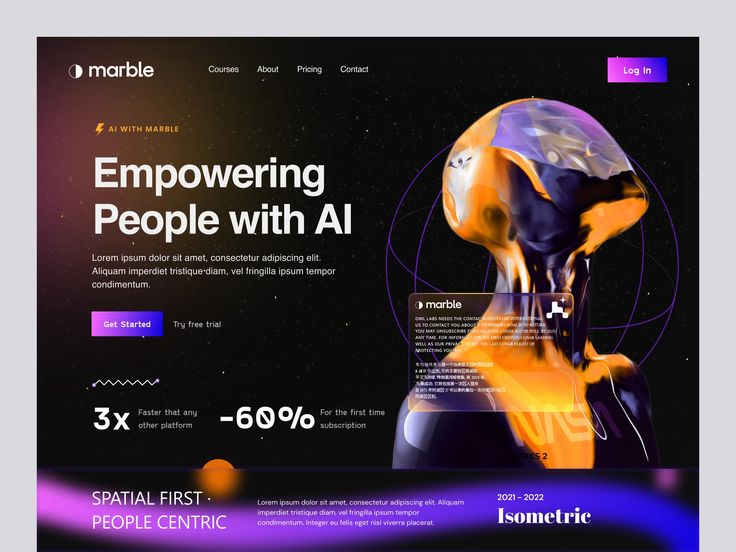In the ever-evolving landscape of web design, integrating AI in web design for personalized user experiences has emerged as a key driver of user engagement and satisfaction. With the advent of artificial intelligence (AI), websites can now offer highly tailored experiences that cater to individual preferences and behaviors. In this article, we’ll explore how AI is revolutionizing web design by enabling personalized experiences that drive engagement and conversion rates.
Table of contents
1. Understanding AI-Powered Personalization:
Integrating AI in web design for personalized user experiences involves leveraging machine learning algorithms to analyze user data and deliver customized content and recommendations. By collecting and analyzing data such as browsing history, demographics, and past interactions, AI can identify patterns and preferences to personalize the user experience in real-time.
2. Benefits of AI-Powered Personalization:
The integration of AI in web design offers several benefits for both users and businesses:
- Enhanced User Experience: Personalized content and recommendations make the user experience more relevant and engaging, leading to increased satisfaction and loyalty.
- Improved Engagement: By delivering content that aligns with users’ interests and preferences, AI-powered personalization encourages deeper engagement and longer browsing sessions.
- Higher Conversion Rates: Personalized recommendations can drive conversion rates by presenting users with products or services that are tailored to their needs and interests.
- Increased Efficiency: AI automates the process of content curation and recommendation, allowing businesses to deliver personalized experiences at scale without requiring manual intervention.
3. Techniques for Integrating AI in Web Design:
There are various techniques and strategies for implementing AI-powered personalization in web design:
- Content Recommendations: AI algorithms can analyze user behavior to recommend relevant articles, products, or services based on their interests and preferences.
- Dynamic Content Generation: AI can dynamically generate content such as product descriptions or email newsletters tailored to individual users.
- User Segmentation: AI can segment users into different groups based on their behavior and demographics, allowing for more targeted personalization.
- Predictive Analytics: AI can predict future user behavior and preferences based on historical data, allowing businesses to anticipate user needs and tailor their offerings accordingly.
4. Overcoming Challenges:
While AI-powered personalization offers significant benefits, there are also challenges to consider:
- Data Privacy: Collecting and analyzing user data raises concerns about privacy and data security, requiring businesses to implement robust data protection measures.
- Algorithm Bias: AI algorithms may inadvertently perpetuate biases present in the training data, leading to unfair or discriminatory outcomes. It’s essential to monitor algorithms for bias and take steps to mitigate it.
- Resource Requirements: Implementing AI-powered personalization requires significant resources in terms of data infrastructure, computational power, and expertise.
5. Future Trends:
The future of AI-powered personalization in web design holds exciting possibilities, including:
- Hyper-Personalization: AI algorithms will become increasingly adept at understanding individual preferences and delivering hyper-personalized experiences in real-time.
- Voice and Visual Search: AI-powered personalization will extend to voice and visual search, allowing users to interact with websites using natural language or images.
- Augmented Reality (AR) Experiences: AI will enable the creation of immersive AR experiences that adapt to users’ preferences and surroundings, blurring the line between the physical and digital worlds.
Conclusion:
In conclusion, AI-powered personalization is transforming the landscape of web design, offering highly tailored experiences that drive engagement, satisfaction, and conversion rates. By leveraging AI algorithms to analyze user data and deliver personalized content and recommendations, businesses can create more relevant and compelling experiences for their users. As AI technology continues to evolve, the possibilities for personalized web design are limitless, promising a future where every interaction is tailored to the individual preferences and needs of the user.


